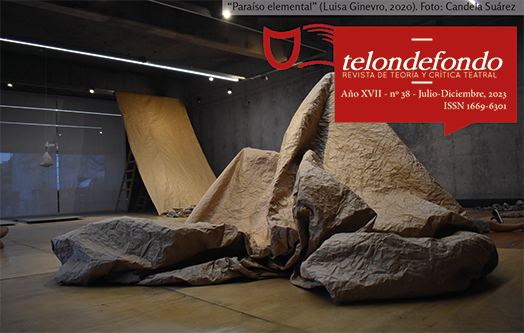Unmasking and Dissolution of the Binary Narrative: The Rewriting of Esteban Echeverría’s "La cautiva" and "El matadero" in Contemporary Theatre
Abstract
Contemporary dramaturgy which rewrites Echeverría establishes a dialogue with the binary narrative of civilization/barbarism implicit in the worldview of the literate youth from the Rio de la Plata in the 19th Century. In the case of Las cautivas, Mariano Tenconi Blanco narrates a love story between two women who represent and expose such polarity, not only the one of civilization/barbarism, but also the gender one. On the other hand, in the play of Martínez Bel and Finamore Olvidate del Matadero, the character who plays the main role -a servant from Don Esteban's ranch- witnesses the opening of the slaughterhouse to the town after a great flood. The story questions the civilization/barbarism dichotomy suggested in Echeverría's work, and the new narrator’s experiential knowledge is legitimized as popular culture.Downloads
Los autores/as que publiquen en esta revista aceptan las siguientes condiciones:
-
Los autores/as conservan los derechos de autor y ceden a la revista el derecho de la primera publicación, con el trabajo registrado con Licencia Creative Commons Atribución-NoComercial-CompartirIgual 4.0 Internacional, que permite a terceros utilizar lo publicado siempre que mencionen la autoría del trabajo y a la primera publicación en esta revista.
-
Los autores/as pueden realizar otros acuerdos contractuales independientes y adicionales para la distribución no exclusiva de la versión del artículo publicado en esta revista (p. ej., incluirlo en un repositorio institucional o publicarlo en un libro) siempre que indiquen claramente que el trabajo se publicó por primera vez en esta revista.
-
Se permite y recomienda a los autores/as a publicar su trabajo en Internet (por ejemplo en páginas institucionales o personales).











